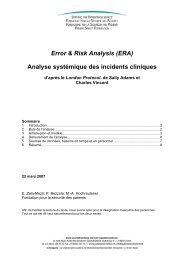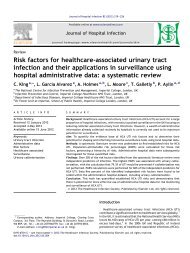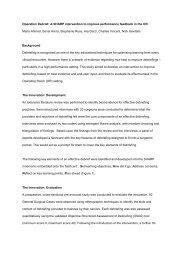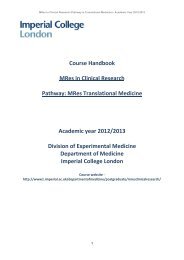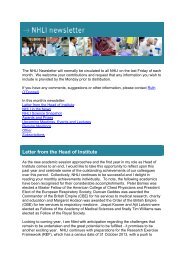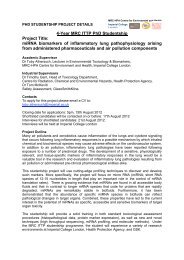QOF Plus Year 1 - Imperial College London
QOF Plus Year 1 - Imperial College London
QOF Plus Year 1 - Imperial College London
You also want an ePaper? Increase the reach of your titles
YUMPU automatically turns print PDFs into web optimized ePapers that Google loves.
Introduction to <strong>QOF</strong>+Improving the quality of primary care services inHammersmith and FulhamContextThe purpose of this paper is to provide the rationale and describe the process for implementing amajor quality improvement initiative for primary care services in Hammersmith and Fulham,called <strong>QOF</strong>+. The initiative has been developed by NHS Hammersmith and Fulham in partnershipwith the eHealth unit of the Department of Primary Care & Social Medicine at <strong>Imperial</strong> <strong>College</strong><strong>London</strong>.NHS Hammersmith and Fulham has identified quality improvement in primary care as a key localpriority. The PCT has earmarked over £2 million annual funding to implement a comprehensivelocal financial incentive scheme (<strong>QOF</strong>+) over the next three years (2008/09, 2009/10, 2010/11).The aims of this scheme are to achieve a step-change in quality and address local priorities.Subject to a positive evaluation, this funding is likely to be extended beyond this period.Defining and measuring the quality of healthcareThere are currently no internationally agreed definitions of healthcare quality. Maxwell (1983)offers six dimensions of quality in healthcare including appropriateness, equity, accessibility,effectiveness, acceptability and efficiency. One of the most widely adopted definitions of qualityis provided by the Institute of Medicine: "The degree to which health services for individuals andpopulations increase the likelihood of desired health outcomes and are consistent with currentprofessional knowledge” (Institute of Medicine, 2001). Performance indicators are designed tomeasure the extent to which health services meet this goal (Majeed, 1995).There has been an increased interest in measuring the quality of care over the past decade. Inparallel, there have been significant developments in databases, both administrative and clinical,which have enabled collection of routine information on quality. These factors have significantlyinfluenced the development and implementation of performance indicators (Majeed et al., 2007).International evidence underlines the importance of high quality primary care in achieving aneffective and efficient health care system and in improving population health (Starfield, 2001).Whilst recent investment in quality initiatives in the UK has led to considerable improvements inprimary care, the quality of service provision remains variable in many areas (Gray et al., 2007;Hippisley-Cox et al., 2004).1



